by Mark Mallett
Public discernment of prophecy is a bit like walking into the midst of a battlefield. Bullets fly from both sides — “friendly fire” is no less damaging than the opponent’s.
Few things generate more controversy in the life of the Church than its mysticism, prophets, and seers. It’s not that the mystics themselves are really all that controversial. They are often simple people, their messages straightforward. Rather, it is the fallen nature of man — his tendency to over-rationalize, to dismiss the supernatural, to rely upon his own powers and venerate his intellect, that often leads to out-of-hand dismissal of the supernatural.
Our times are no different.
The early Church, of course, embraced the gift of prophecy, which St. Paul considered next in importance only to apostolic authority (cf. 1 Cor 12:28). Dr. Niels Christian Hvidt, PhD, writes, “Most scholars agree that prophecy played an important role in the early Church, and that the problems of how to handle it lead to a change in authority in the early Church, even to the formation of the Gospel genre.”[1]Christian Prophecy – The Post-Biblical Tradition, p. 85 But prophecy itself never ceased.
Prophecy as it had been known at Corinth, was no longer considered proper for the sanctuary…. It did not, however, wholly die. It went instead to the arena with the martyrs, to the desert with the fathers, to the monasteries with Benedict, to the streets with Francis, to the cloisters with Teresa of Avila and John of the Cross, to the heathen with Francis Xavier…. And without bearing the name of prophets, charismatics like Joan of Arc and Catherine of Sienna would have a profound influence on the public life of polis and Church. —Fr. George T. Montague, The Spirit and His Gifts: The Biblical Background of Spirit-Baptism, Tongue-Speaking, and Prophecy, Paulist Press, p. 46
Nonetheless, there were always difficulties. “From the beginning,” writes Dr. Hvidt, “prophecy was connected with its counterpart—false prophecy. The first witnesses had been able to identify false prophecy through their ability to discern spirits as well as their certain knowledge of true Christian doctrine, on which prophets were judged.”[2]Ibid. p. 84
While discernment of prophecy against the backdrop of 2000 years of Church teaching is a fairly simple exercise in that regard, a serious question arises: does our generation still retain the ability “to discern spirits”?
If so, it has become less and less evident. As I wrote some time ago in Rationalism, and the Death of Mystery, the Enlightenment period laid the groundwork for a gradual dismissal of the supernatural for a solely rational (and subjective) perception of the world. Anyone who believes this did not infect the Church herself need only consider the extent to which the Liturgy itself was drained of signs and symbols that pointed to the Beyond. In some places, church walls were literally white-washed, statues smashed, candles snuffed, incense doused, and icons, crosses, and relics closeted. The official prayers and rites were watered down, their language muted.[3]cf. On Weaponizing the Mass and On the Mass Going Forward
But all this is merely a physical outcome of the underlying spiritual malady that white-washed mysticism in our seminaries for decades, to the point that many clergy today are ill-equipped to deal with supernatural realities, charisms, and spiritual warfare, much less prophecy.
Recent Controversies
There’s been some recent controversy regarding certain seers and mystics that we have been discerning on Countdown to the Kingdom. If you are new here, we recommend you first read our Disclaimer on the Home Page that explains both why this website exists and its process of discernment, according to the Church’s directives.
Those of us who founded this website (see here) along with our translator, Peter Bannister, knew the risks of this project: the knee-jerk dismissal of anything mystical, the stereotypical labelling of our team or our readers as “apparition chasers,” the deep cynicism of private revelation among academics, the default resistance of clergy, and so forth. Nonetheless, none of these risks or threats to our “reputation” outweighs the biblical and perennial imperative of St. Paul:
Do not despise the words of prophets, but test everything; hold fast to what is good… (1 Thessalonians 5:20-21)
Guided by the Magisterium of the Church, the sensus fidelium knows how to discern and welcome in these revelations whatever constitutes an authentic call of Christ or his saints to the Church. —Catechism of the Catholic Church, n. 67
It is this “authentic call of Christ” and Our Lady that concerns us. In fact, we have been privileged to receive weekly letters from around the world thanking us for this project since it was launched on the Feast of the Annunciation, almost four years ago. It has led to the “conversion” of many, and often dramatically so. That is our goal — the rest, such as preparation for apocalyptic changes, are secondary, though by no means irrelevant. Otherwise, why would Heaven speak of these times if they weren’t important in the first place?
The Seers in Question
In the past year, we have removed three seers from this website for various reasons. The first was that of an anonymous soul who visibly saw the numbers of the so-called “Blue Book” of the messages of Our Lady to the late Fr. Stefano Gobbi. However, the Marian Movement of Priests in the United States asked that the messages not be published outside the context of the entire volume, and so we ultimately removed them.
The second seer was Fr. Michel Rodrigue of Quebec, Canada. His videos and teachings posted here reached tens of thousands and moved countless souls to “wake up” and begin to take their faith seriously. This will be the enduring fruit of this faithful priest’s apostolate. As we detailed in a post here, however, a certain dramatic failed prophecy cast a shadow on whether Fr. Michel could be considered a credible prophetic source. Without relitigating that decision, you can read why we no longer continue to post his prophecies here. (It is worth noting that, although his bishop distanced himself from the prophecies of Fr. Michel, no official declaration or commission was ever established to investigate and formally declare on the alleged private revelations.)
A third alleged seer removed from Countdown is Gisella Cardia of Trevignano Romano, Italy. Her bishop recently declared that the alleged apparitions to her are to be considered constat de non supernaturalitate — not supernatural in origin, and therefore, not worthy of belief. In keeping with our Disclaimer, we have removed the messages.
However, the question of the “ability to discern spirits” has been validly raised by Peter Bannister in “A Theological Response to the Commission on Gisella Cardia.” Moreover, aside from the points he raises, we have learned that the bishop there admitted in a recent interview that “The task of the Commission was not concerned with the stigmata [on Gisella’s hands], concentrating, rather, on the phenomenon of the apparitions.”[4]https://www.affaritaliani.it This is perplexing to say the least.
It strikes me as very strange that the methodology employed by the Commission of the diocese of Civita Castellana did not acknowledge the organic connection between apparitions, messages, and various types of alleged supernatural manifestations (including the stigmata in this case, particularly given the existing medical documentation). It is surely the most obvious and elegant explanation to regard such phenomena, if genuine, as pointers to the authenticity of the apparitions and associated messages. Can the messages supposedly received by Gisella Cardia still contain errors if the phenomena are true? Yes, of course, because there are always human factors involved in the reception of mystical communications, and things can be “lost in transmission” due to the inherent limitations of the recipient. But how rationally justified is it to admit openly that Gisella Cardia’s alleged stigmata have not been studied, (meaning ipso facto that a supernatural origin has not been excluded) and yet to reach a judgment of constat de non supernaturalitate regarding the events in Trevignano Romano? [5]Bannister concludes, “The wording constat de non… is definitely negative and goes beyond affirming an “absence of proof” of the supernatural. The only conclusion can be that the diocese considered that the issue of the stigmata was not relevant to the inquiry, which is extremely surprising, to say the least, and raises more questions than it answers. Is the unexplained appearance of wounds corresponding to those of Christ during Lent and their equally unexplained disappearance after Good Friday, in the presence of witnesses, somehow not an “event” to be taken into consideration?” —Peter Bannister, MTh, MPhil
There is more one could say here, such as the fact that Ms. Cardia’s messages were orthodox, they echoed those of other approved seers, and were consistent with the prophetic consensus.
A Collapse in Discernment
The reason I point this out is that we caught wind of a certain Catholic priest, well known in Divine Will circles, who has been accusing this website of promoting “false seers.” This defamation has been ongoing for some time now, which has disturbed many who once trusted in his discernment. Moreover, it betrays a basic lack of understanding of the process of “discernment of spirits” and the purpose of this website.
We do not declare any prophecy here to be true (unless obviously fulfilled) — even that of approved seers whose messages one could say, at best, are worthy of belief. Rather, Countdown to the Kingdom exists to simply discern, with the Church, the serious and more credible messages allegedly from Heaven.
Recall that St. Paul asked the prophets to stand up in the assembly and proclaim their message:
Two or three prophets should speak, and the others discern. (1 Cor 14:29-33)
However, if Paul or the body of believers deemed a certain message or prophet to not be credible, does that mean that they were “promoting false seers”? That’s ridiculous, of course. How else does one determine the veracity of an alleged prophecy unless the seer is tested? No, Paul and the assembly were properly discerning what constituted the “authentic call of Christ,” and what did not. And that is what we are attempting here as well.
Even then, it seems that that the Church has more often than not tragically failed in her declarations on saints and mystics alike. From St. Joan of Arc, to St. John of the Cross, to the seers of Fatima, to St. Faustina, St. Pio, etc…. they were declared as “false” until they were eventually established as true.
That should stand as a warning to those who are so ready to stone the prophets, much less those who have simply offered a platform for their discernment.
On Servant of God Luisa Piccarreta
Finally, there was a leaked confidential letter between Cardinal Marcello Semeraro of the Dicastery for the Cause of the Saints, and Bishop Bertrand of Mendes, President of the Doctrinal Commission of the Episcopate in France. The letter indicates that the Cause for the beatification of Servant of God Luisa Piccarreta has been suspended.[6]cf. La Croix, February 2, 2024 The reasons given were “theological, Christological, and anthropological.”
However, a small, further explanation in the letter betrays what appears to be a gross misrepresentation of Luisa’s writings that not only bear 19 imprimaturs and nihil obstats (granted by the appointed censor librorum, who is himself a canonized Saint, Hannibal di Francia), but were reviewed by two theological censors appointed by the Vatican.[7]cf. On Luisa, and Her Writings Both independently concluded that her works were without error — which remains the current view of the local ordinary, established twelve years ago:
I wish to address all those who claim that these writings contain doctrinal errors. This, to date, has never been endorsed by any pronouncement by the Holy See, nor personally by myself… these persons cause scandal to the faithful who are spiritually nourished by said writings, originating also suspicion of those of us who are zealous in the pursuit of the Cause. —Archbishop Giovanni Battista Pichierri, November 12th, 2012; danieloconnor.files.wordpress.com
That, however, did not stop the Korean bishops from recently condemning her writings. However, their accusations against this holy mystic’s works are so problematic, that our colleague Prof. Daniel O’Connor has published a paper refuting their conclusions in the interest of a proper theological discussion, given the legendary holiness and approval of this Servant of God.
In my article On Luisa and Her Writings, I have explained at length the long and incredible life of this Italian mystic who wrote 36 volumes — but only because her spiritual director, St. Hannibal, ordered her to do so. She lived solely on the Eucharist much of the time and was sometimes in an ecstatic state for days on end. The essence of her messages are the same as that of the Early Church Fathers: that before the end of the world, Christ’s Kingdom of the Divine Will is going to reign “on earth as it is in heaven,” as we have been praying every day for 2000 years in the “Our Father.”[8]cf. How the Era was Lost
Hence, the shrill accusations we see from laity and priests alike declaring these writings as “demonic” are themselves a “sign of the times.” For the propagation of the writings are an essential preparation for the coming Era of Peace.[9]“The time in which these writings will be made known is relative to and dependent on the disposition of souls who wish to receive so great a good, as well as on the effort of those who must apply themselves in being its trumpet-bearers by offering up the sacrifice of heralding in the new era of peace…” —Jesus to Luisa, The Gift of Living in the Divine Will in the Writings of Luisa Piccarreta, n. 1.11.6 If they are to be suppressed — and they now are in Korea — then we have most certainly brought ourselves perilously close to the “Day of Justice” that Jesus spoke of to St. Faustina.
There is more one could say, however, I did not set out to write a book. The discernment of prophecy has not always been an easy thing. Morever, the message of the prophets has rarely been embraced in salvation history at the best of times… and it is usually the “churched” who are the ones to stone them.
At the same time that the condemnations of Gisella and Luisa were spreading around the globe, so too, were the Mass readings for that week:
From the day that your fathers left the land of Egypt even to this day,
I have sent you untiringly all my servants the prophets.
Yet they have not obeyed me nor paid heed;
they have stiffened their necks and done worse than their fathers.
When you speak all these words to them,
they will not listen to you either;
when you call to them, they will not answer you.
Say to them:
This is the nation that does not listen
to the voice of the LORD, its God,
or take correction.
Faithfulness has disappeared;
the word itself is banished from their speech. (Jeremiah 7; cf. here)
Footnotes
| ↑1 | Christian Prophecy – The Post-Biblical Tradition, p. 85 |
|---|---|
| ↑2 | Ibid. p. 84 |
| ↑3 | cf. On Weaponizing the Mass and On the Mass Going Forward |
| ↑4 | https://www.affaritaliani.it |
| ↑5 | Bannister concludes, “The wording constat de non… is definitely negative and goes beyond affirming an “absence of proof” of the supernatural. The only conclusion can be that the diocese considered that the issue of the stigmata was not relevant to the inquiry, which is extremely surprising, to say the least, and raises more questions than it answers. Is the unexplained appearance of wounds corresponding to those of Christ during Lent and their equally unexplained disappearance after Good Friday, in the presence of witnesses, somehow not an “event” to be taken into consideration?” |
| ↑6 | cf. La Croix, February 2, 2024 |
| ↑7 | cf. On Luisa, and Her Writings |
| ↑8 | cf. How the Era was Lost |
| ↑9 | “The time in which these writings will be made known is relative to and dependent on the disposition of souls who wish to receive so great a good, as well as on the effort of those who must apply themselves in being its trumpet-bearers by offering up the sacrifice of heralding in the new era of peace…” —Jesus to Luisa, The Gift of Living in the Divine Will in the Writings of Luisa Piccarreta, n. 1.11.6 |

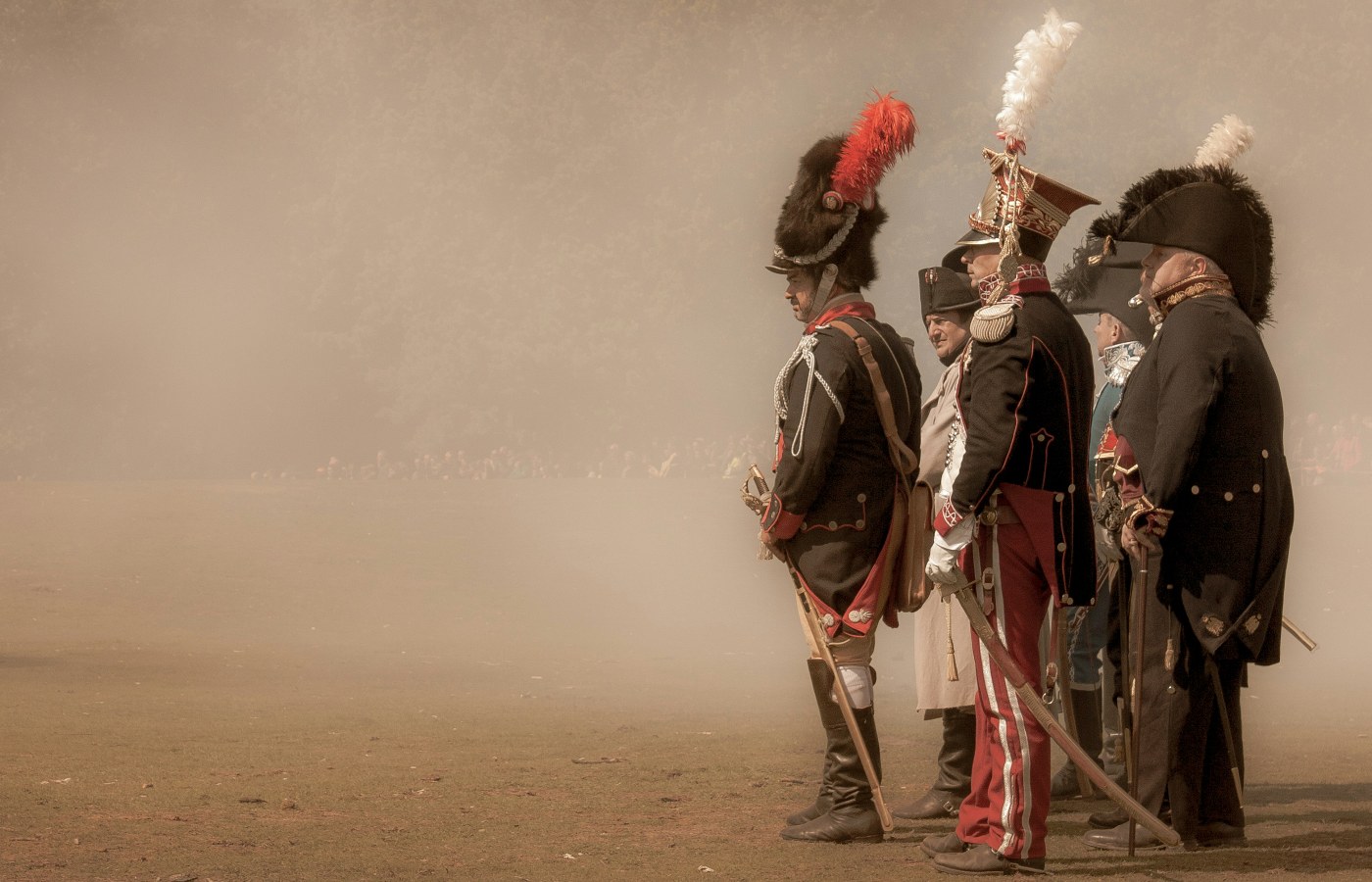

 Alicja Lenczewska
Alicja Lenczewska

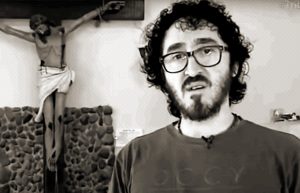
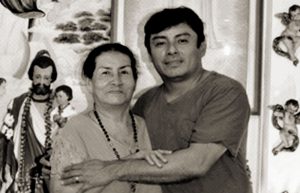
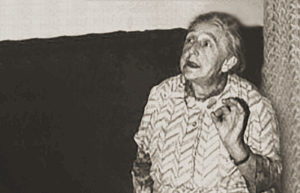 Elizabeth Kindelmann
Elizabeth Kindelmann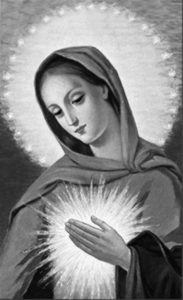 Through what became The Spiritual Diary, Jesus and Mary taught Elizabeth, and they continue to instruct the faithful in the divine art of suffering for the salvation of souls. Tasks are assigned for each day of the week, which involve prayer, fasting, and night vigils, with beautiful promises attached to them, laced with special graces for priests and the souls in purgatory. In their messages, Jesus and Mary say that The Flame of Love of the Immaculate Heart of Mary is the greatest grace given to mankind since the Incarnation. And in the not-so-distant future, her flame will engulf the entire world.
Through what became The Spiritual Diary, Jesus and Mary taught Elizabeth, and they continue to instruct the faithful in the divine art of suffering for the salvation of souls. Tasks are assigned for each day of the week, which involve prayer, fasting, and night vigils, with beautiful promises attached to them, laced with special graces for priests and the souls in purgatory. In their messages, Jesus and Mary say that The Flame of Love of the Immaculate Heart of Mary is the greatest grace given to mankind since the Incarnation. And in the not-so-distant future, her flame will engulf the entire world.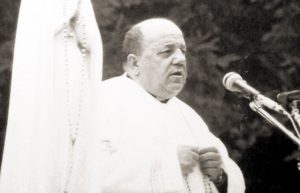 Father Stefano Gobbi
Father Stefano Gobbi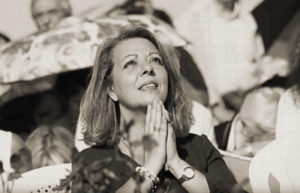 Why Gisella Cardia?
Why Gisella Cardia?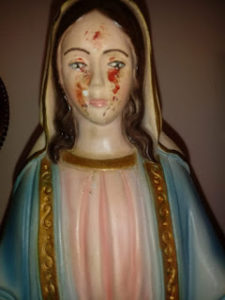 Thirdly, the messages have frequently been accompanied by visible phenomena, photographic evidence found in In Cammino con Maria, which cannot be the fruit of subjective imagination, notably the presence of the stigmata on Giselle’s body and and the appearance of crosses or religious texts in blood on Gisella’s arms. See the pictures taken from her apparition website
Thirdly, the messages have frequently been accompanied by visible phenomena, photographic evidence found in In Cammino con Maria, which cannot be the fruit of subjective imagination, notably the presence of the stigmata on Giselle’s body and and the appearance of crosses or religious texts in blood on Gisella’s arms. See the pictures taken from her apparition website 
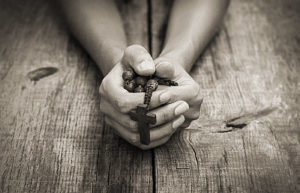 Jennifer
Jennifer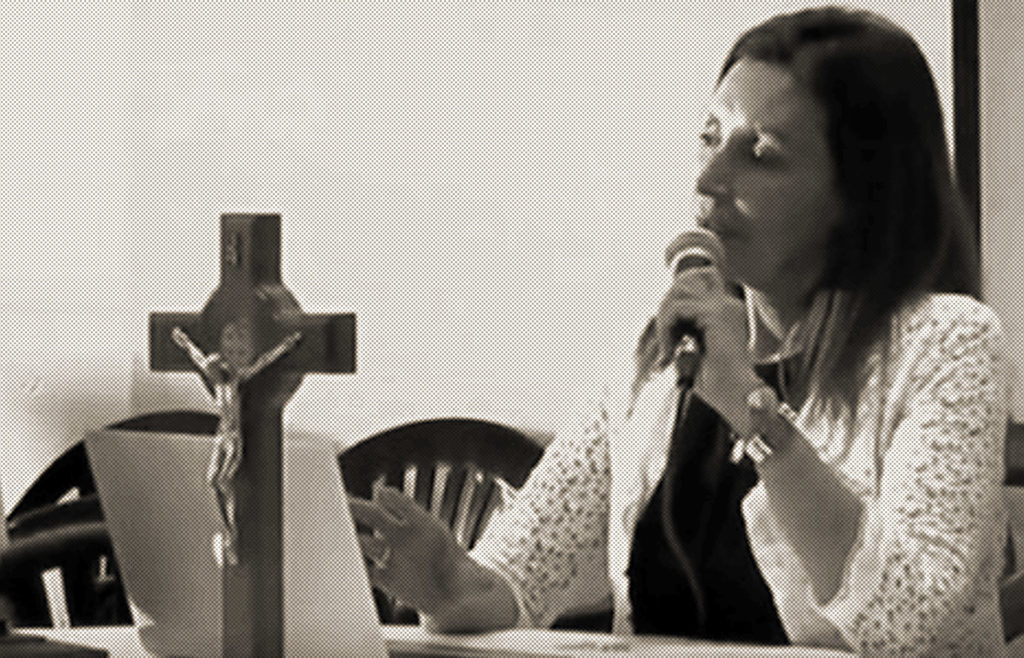
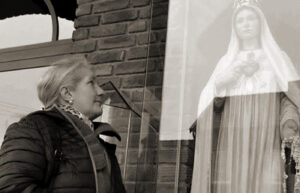 Why Manuela Strack?
Why Manuela Strack?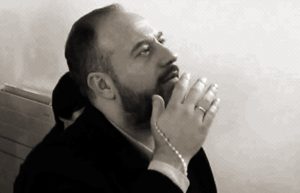
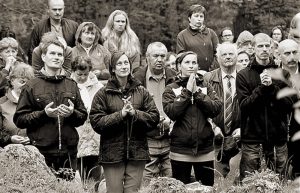
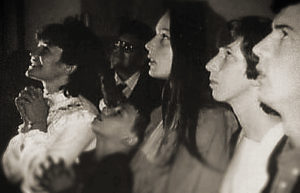 Why the Visionaries of Our Lady of Medjugorje?
Why the Visionaries of Our Lady of Medjugorje?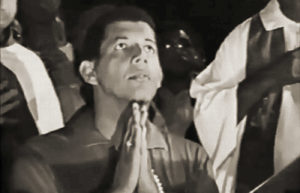 Why Pedro Regis?
Why Pedro Regis?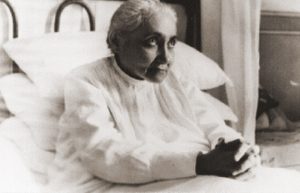 Why the Servant of God Luisa Piccarreta?
Why the Servant of God Luisa Piccarreta? of the saints. It wasn’t until she became a “Daughter of Mary” that the nightmares finally ceased at the age of eleven. In the following year, Jesus began to speak interiorly to her especially after receiving Holy Communion. When she was thirteen, He appeared to her in a vision that she witnessed from the balcony of her home. There, in the street below, she saw a crowd and armed soldiers leading three prisoners; she recognized Jesus as one of them. When He arrived beneath her balcony, He raised his head and cried out: “Soul, help Me!” Deeply moved, Luisa offered herself from that day on as a victim soul in expiation for the sins of mankind.
of the saints. It wasn’t until she became a “Daughter of Mary” that the nightmares finally ceased at the age of eleven. In the following year, Jesus began to speak interiorly to her especially after receiving Holy Communion. When she was thirteen, He appeared to her in a vision that she witnessed from the balcony of her home. There, in the street below, she saw a crowd and armed soldiers leading three prisoners; she recognized Jesus as one of them. When He arrived beneath her balcony, He raised his head and cried out: “Soul, help Me!” Deeply moved, Luisa offered herself from that day on as a victim soul in expiation for the sins of mankind. immobile, rigid-like state that appeared almost as if she were dead. It was only when a priest made the sign of the Cross over her body that Luisa regained her faculties. This remarkable mystical state persisted until her death in 1947—followed by a funeral that was no little affair. During that period in her life, she suffered no physical illness (until she succumbed to pneumonia at the end) and she never experienced bedsores, despite being confined to her little bed for sixty-four years.
immobile, rigid-like state that appeared almost as if she were dead. It was only when a priest made the sign of the Cross over her body that Luisa regained her faculties. This remarkable mystical state persisted until her death in 1947—followed by a funeral that was no little affair. During that period in her life, she suffered no physical illness (until she succumbed to pneumonia at the end) and she never experienced bedsores, despite being confined to her little bed for sixty-four years.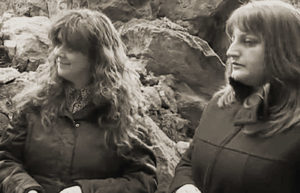 Why Simona and Angela?
Why Simona and Angela?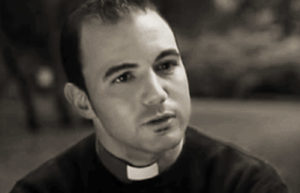
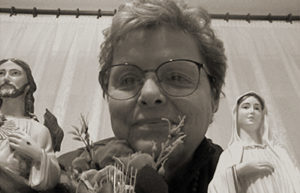 Valeria Copponi
Valeria Copponi